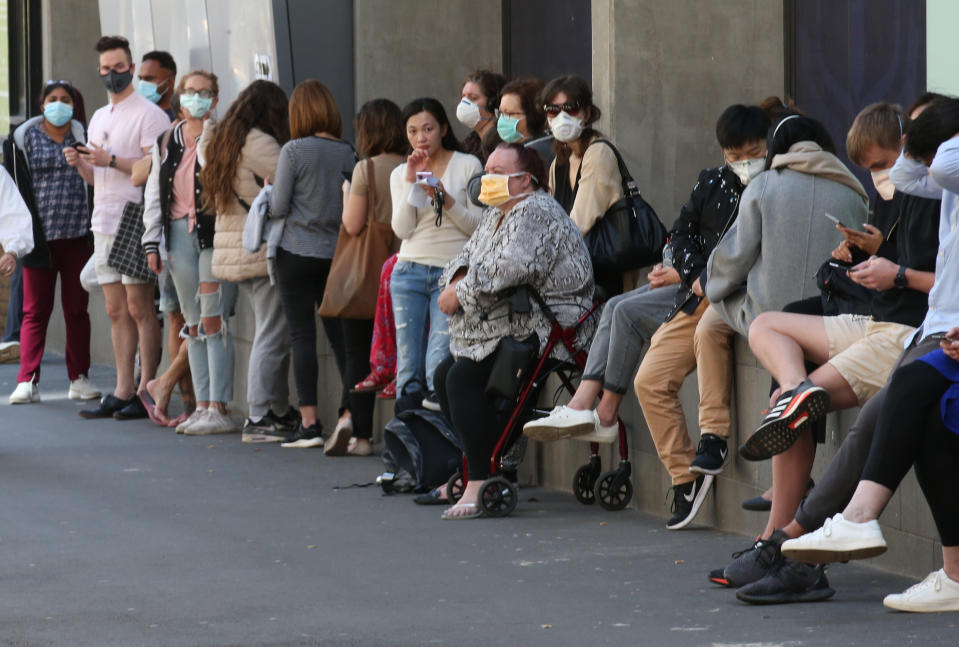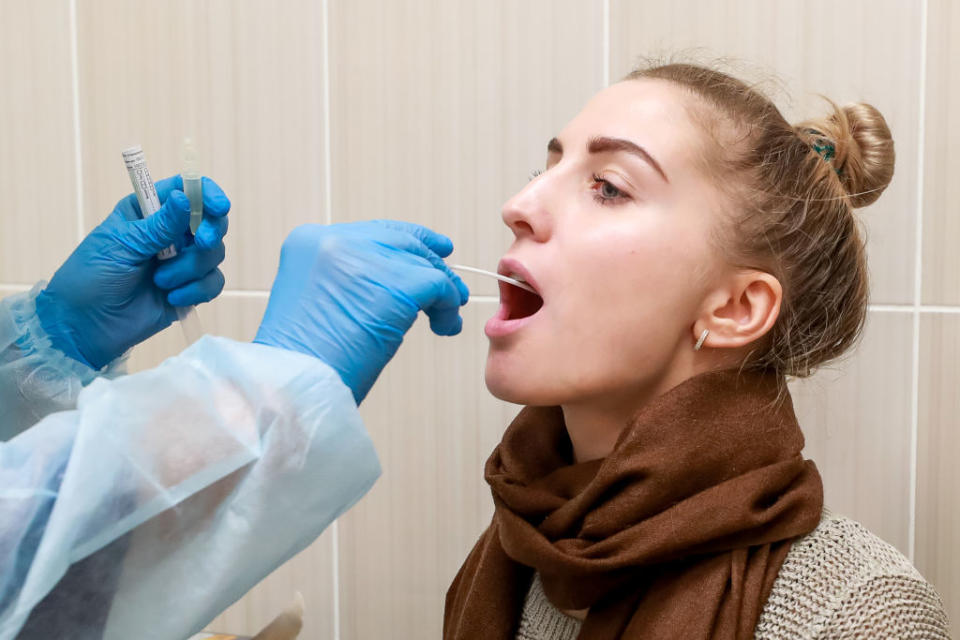Coronavirus: Criteria you need to meet for testing in Australia
With thousands of coronavirus cases in Australia, there is a growing sense of fear among the public.
However, anxiety over contracting the virus isn’t enough to warrant the use of essential medical resources and at this stage only certain people can be tested for coronavirus.
There are strict criteria someone must meet before they are tested at a medical facility.
Criteria for coronavirus testing
Acting Deputy Chief Medical Officer Paul Kelly said on Tuesday the testing criteria for COVID-19 has been expanded to include “suspect cases”.
Professor Kelly said previously the focus was on returning travellers but that’s been expanded to include those who may have been in contact with them.
“So the ones that are most likely are those that have had either recent overseas travel or household contact with a confirmed case of COVID-19 and we have a new category called suspect cases,” he said.

“So these will be people that have been in close contact, not just household contacts, international travel, cruise ship passengers, and those in high-risk settings, for example, aged care care facilities, boarding schools, correctional facilities, Aboriginal, rural and remote communities and so on.”
People with fever or acute respiratory infection working in the healthcare and aged care industry will have access to tests too.
The criteria you need to meet to be tested for coronavirus
You have returned from overseas in the past 14 days and you develop respiratory illness with or without fever.
You are a “suspect case” and have been in close contact with a cruise ship passenger or an overseas traveller, or in an aged care facility,
You have been in close contact with a confirmed COVID-19 case in the past 14 days and you develop respiratory illness with or without fever.
You have severe community-acquired pneumonia and there is no clear cause.
You are a healthcare worker who works directly with patients and you have a respiratory illness and a fever.
You live in or have visited an area where there is elevated risk of community transmission.

What to do if you need to be tested
It is vital you contact your doctor or a hospital before arriving for a test so you can arrange the best course of action. It also allows them to be better protected should you actually have the virus too.
If showing symptoms, you should wear a mask en route to a medical centre.
“Stay at least 1.5 metres away from other people. Cover your coughs or sneezes with your elbow,” the Department of Health advises.
Why can’t just anyone get tested?
While the government has failed to confirm how many testing kits it has nationally, they are struggling to meet the growing demand.
“There is a global shortage of the test kits that pathologists use to diagnose COVID-19,” the Department of Health says.
“This is why we are doing targeted testing instead of widespread testing.”

What are the symptoms of coronavirus?
Symptoms of coronavirus range from mild illness to pneumonia.
Among the most common symptoms people might experience fever, flu-like symptoms such as coughing, sore throat and fatigue, shortness of breath.
The Department of Health also has a “symptom checker” for anyone who suspects they might have COVID-19.

Do you have a story tip? Email: newsroomau@yahoonews.com.
You can also follow us on Facebook, Instagram and Twitter and download the Yahoo News app from the App Store or Google Play.




